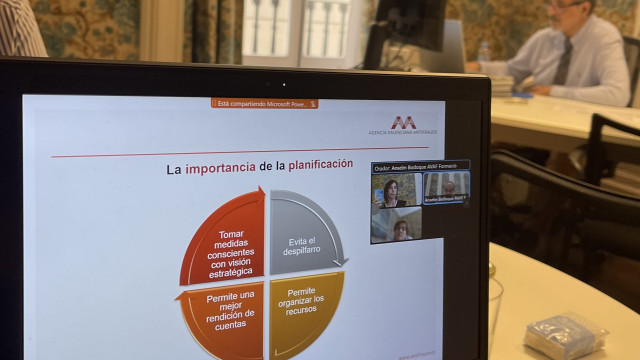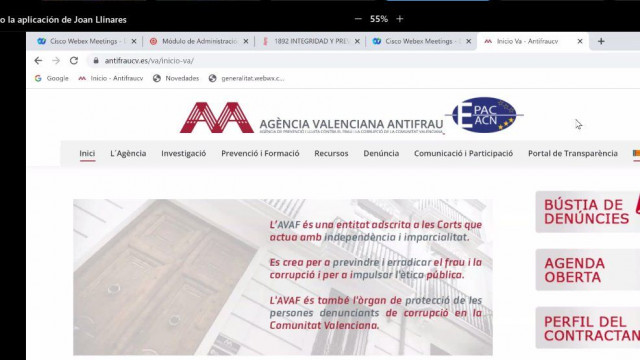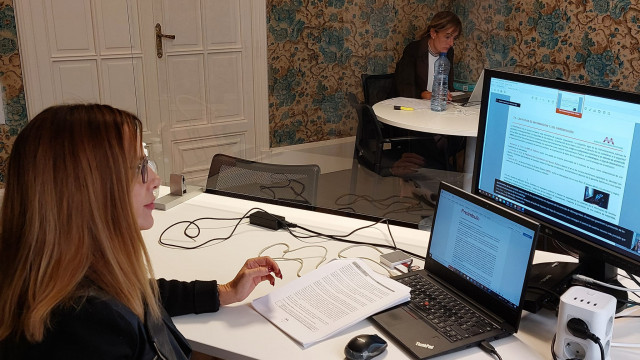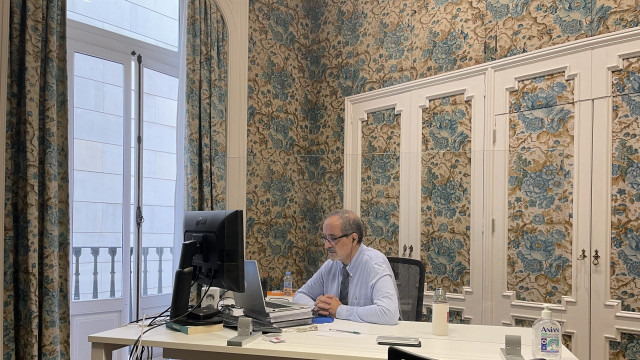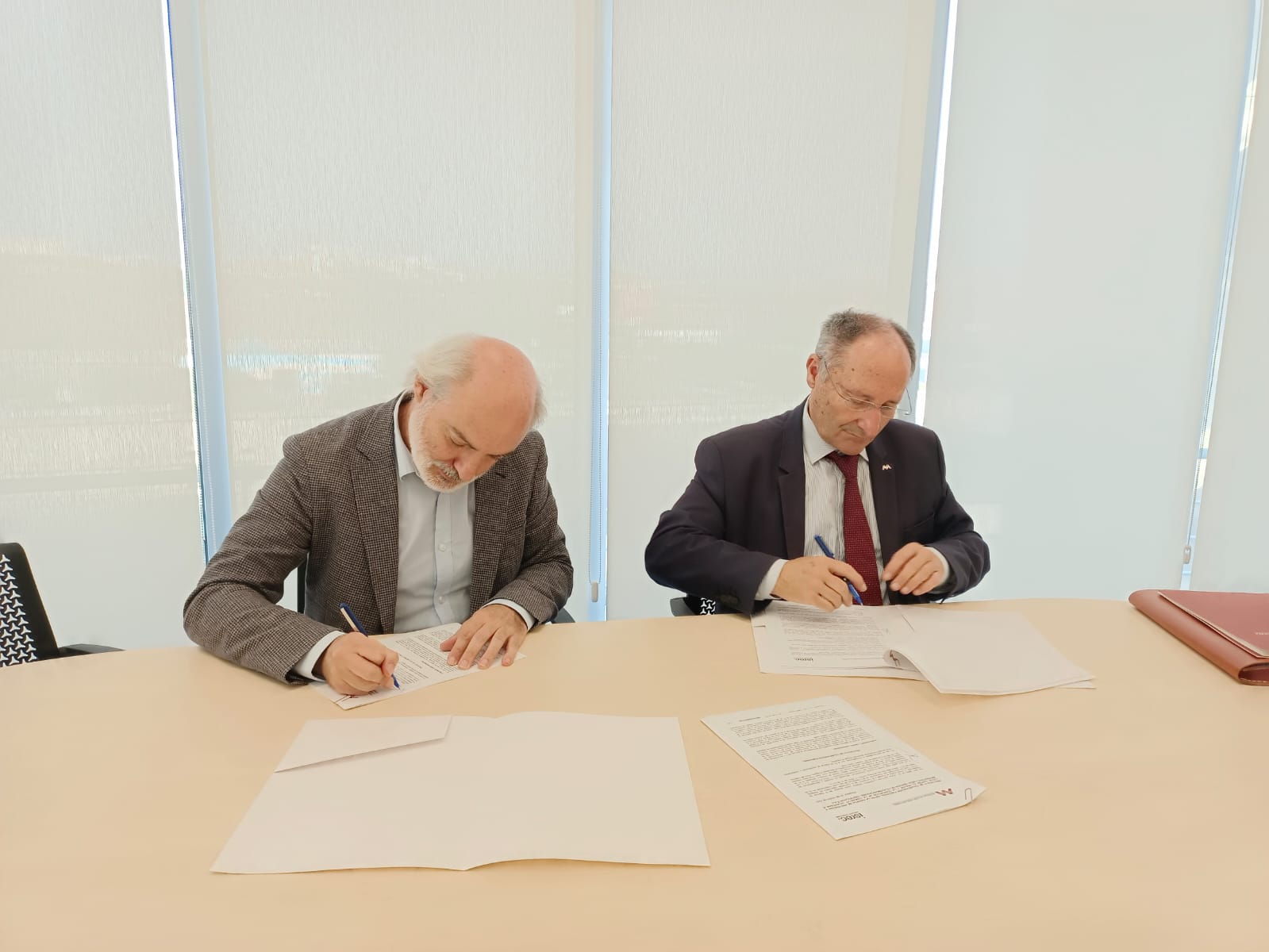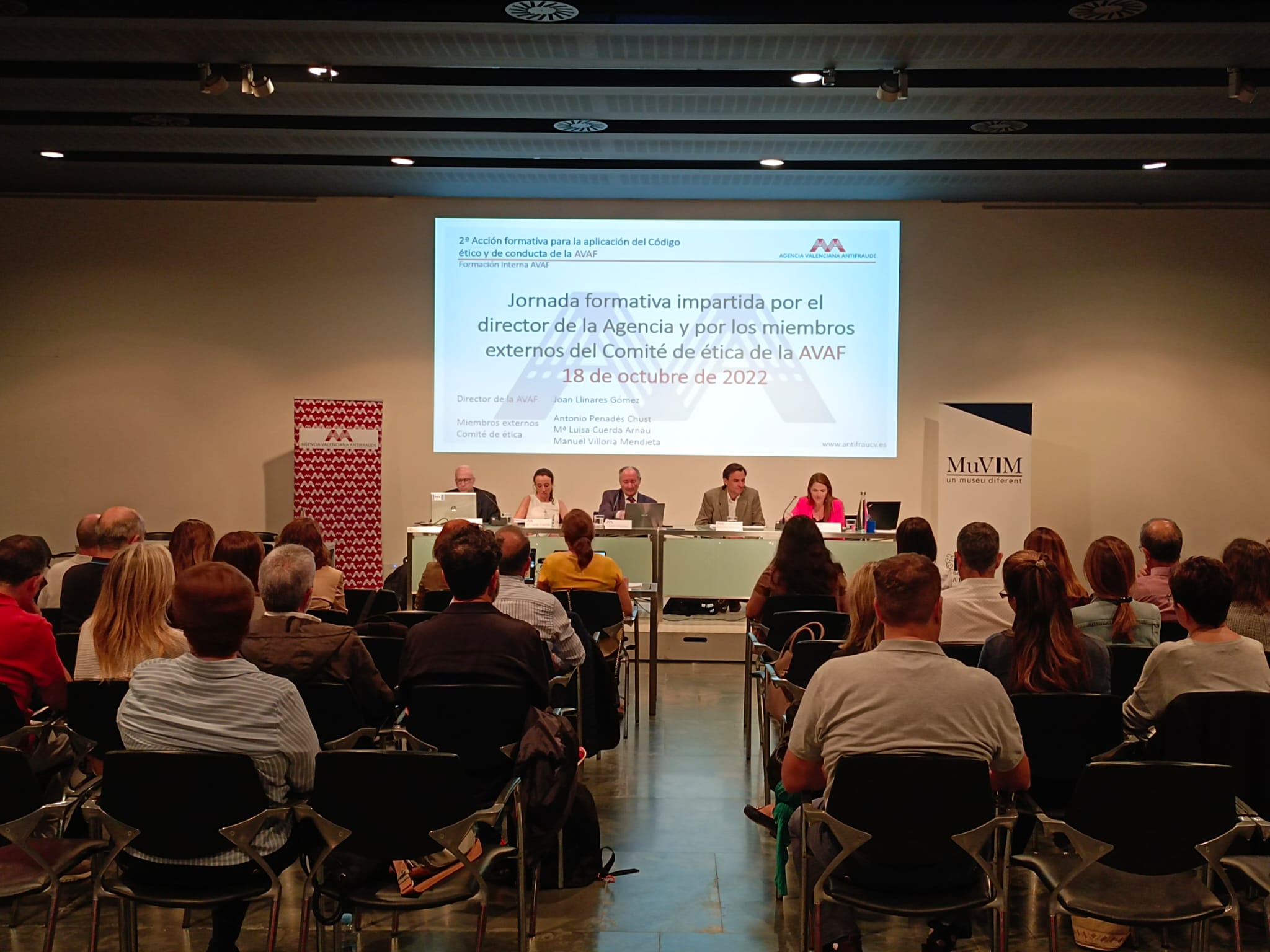Valencia, November 3.- The AVAF has given the fourth edition of the 20-hours course “Integrity and prevention in public management and contracting in the Valencian Community”, at the Valencian Institute of Public Administration, with sessions on October 20, 21, 25, 27 and November 3, 2022.
Joan Llinares, director of the Agency presented the course at the session on October 20. Subsequently, the students selected by the IVAP had the opportunity to learn about the situation of corruption and the fight against fraud in the national and international context, as well as an analysis of the situation in the Valencian Community and regional regulations, in the presentation by Anselm Bodoque Arribas, head of the AVAF Training Service.
The session on October 21 was the turn of the presentation of the Agency for the Prevention and Fight against Fraud and Corruption in the Valencian Community by the director of Prevention, Training and Documentation, Víctor Almonacid Lamelas. Prevention was highlighted as the first phase of the anti-fraud cycle and training as one of the preventive mechanisms for risks that can lead to irregularities that undermine the well-being of citizens.
Irene Bravo Rey, head of the AVAF Prevention service, gave two of the five training sessions. Prevention and integrity in public procurement were the common thread of the first training session. Beyond the criminal compliance systems, the ISO 37301 standard and the current requirements for the protection of EU funds linked to RRF, Irene Bravo highlighted title III of the new law on transparency and good governance of the Valencian Community that imposes integrity frameworks with a minimum content, incorporating a good part of the amendments presented by the Valencian Anti-Fraud Agency.
In the session of October 27, Irene Bravo presented the latest recommendation of the AVAF, prepared by the Prevention service “The execution of contracts in the key of public integrity”
The control of the execution of the contracts is an obligation imposed by our positive law and the aforementioned AVAF recommendation aims to:
i) identify the main risks contrary to integrity during the life of a contract;
ii) emphasize the most frequent red flags in the daily life of Valencian institutions;
iii) pay special attention to emergency recruitment;
iv) analyze the essential figure of the person responsible for the contract; i v) propose the main prevention and public integrity mechanisms.
In the last session of the course, on November 3, 2022, a workshop was held based on the #DocuforumAVAF, facilitated by Anselm Bodoque Arribas, head of the Training service, and Pilar Moreno García, AVAF training technician. The documentary “Corruption: Harmful Organism” by Pandora Box allowed the students of the Generalitat Valenciana course to learn first-hand about the situation of whistleblowers of corruption and the need to exercise protection against them, to avoid reprisals. “Conflict of interest” was the second documentary viewed, on this occasion, produced by the Audiovisual Workshop of the University of Valencia. Public employees delved into the recommendation made by the AVAF to learn in detail about this risk of corruption in the public administration.
We want to thank the Valencian Institute of Public Administration for the collaboration with the Valencian Anti-Fraud Agency for carrying out this course.



